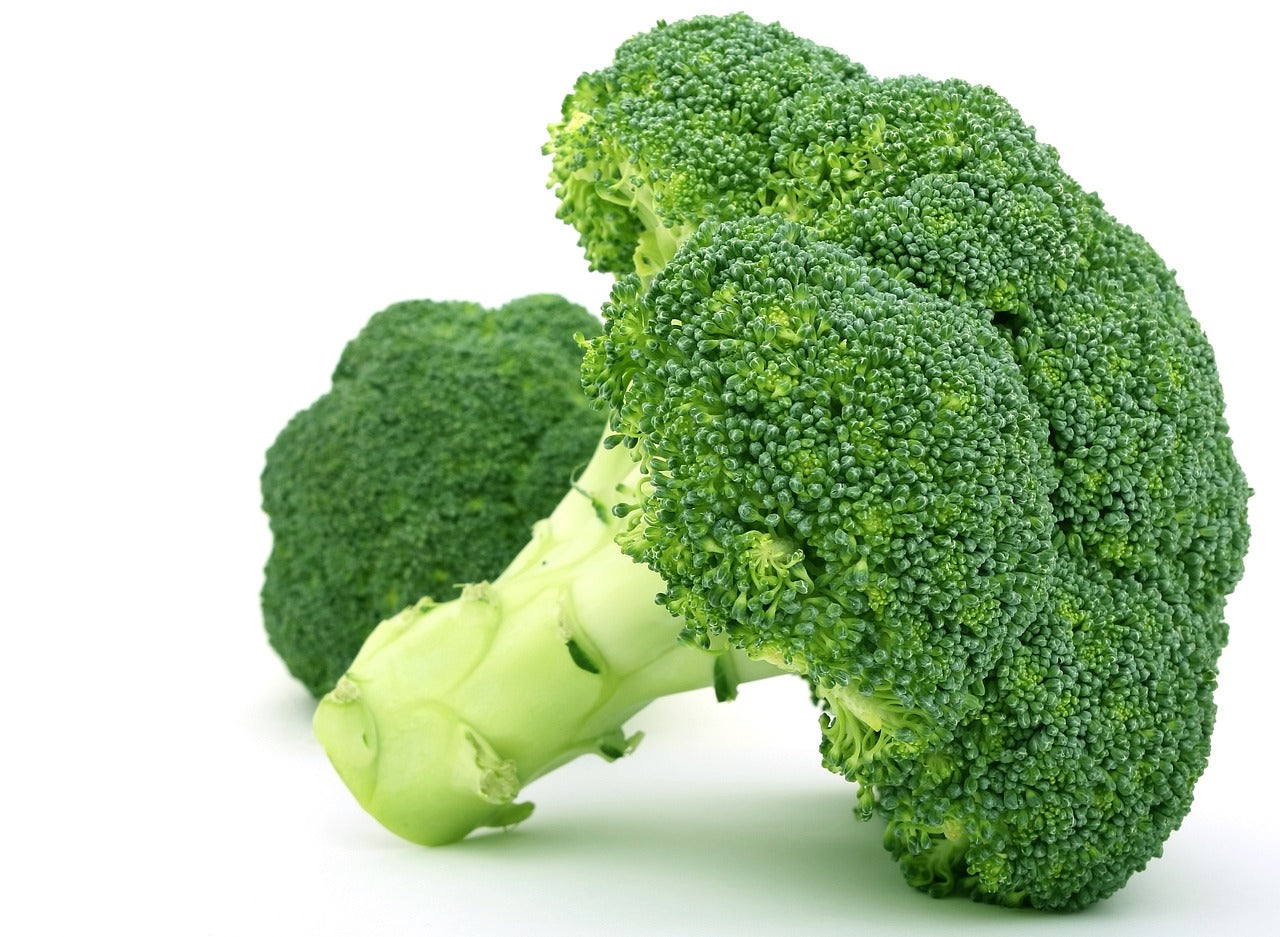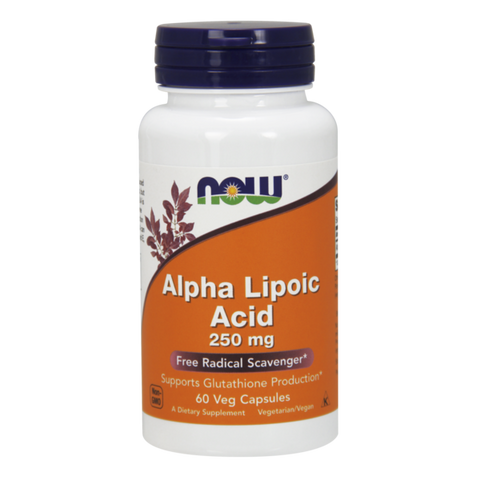
The Best Reasons To Take Alpha Lipoic Acid
If I told you I advised some of my patients to "drop acid" you'd probably think I should have my medical license revoked.
Well if we were talking about LSD then you're absolutely right.
But go ahead and relax a bit, I haven't told any of my patients to do illicit drugs. In fact, I try my best to prevent my patients from taking any drugs if possible.
Which is why I recommend they take other kinds of acid.
Truth is I recommend my patients get a whole compliment of acid in their diets. From amino acids found in protein to alpha lipoic acid, one of the most well known antioxidants around.
If you've never heard of alpha lipoic acid I think you'll find it's a fascinating supplement and wouldn't be surprised if you want to start getting more of it in your diet ASAP.
Alpha Lipoic Acid Explained + Where to Find It Naturally
As I've written about with great frequency, antioxidants are some of the most important nutritive elements for your body. Their strong ability to help defend your body from the harmful effects of free-radical damage is probably the #1 reason to up your intake of them.
It just so happens Alpha Lipoic Acid (or ALA for short) is one of the strongest antioxidants in the world. Studies suggest it outperforms almost all other known antioxidants. Plus, it's one of the only ones we know of that can easily make its way into the brain. This gives it a remarkable ability to protect brain cells from the ravages of oxidization.
So where exactly do you get ALA in your diet? You can get it from grass fed meat, organ meats (like liver, and kidney), spinach, broccoli, Brussels sprouts, peas, and tomatoes.
The caveat to this is even though you can find ALA in your diet, you can't experience the full benefit of its therapeutic effect.
"ALA consumed as part of the diet has a very minimal effect on the overall bioavailability of the antioxidant in your body, according to Geoffrey P. Webb, Ph.D., author of “Dietary Supplements and Functional Foods.”
Because dietary ALA is bound to lysine -- an amino acid that itself is bound to protein -- and thus does not circulate as free ALA, the body cannot benefit from it in the same way as it does with the ALA that your body produces on its own. Webb explains that human digestive enzymes are unable to break the bond between ALA and lysine."
That means if you're trying to reap the full benefits of ALA you really need to supplement with it.
So what are those benefits?
Let me show you.
The Best Reasons To Take Alpha Lipoic Acid
We've only known about the health benefits of Alpha Lipoic Acid for a few decades.
Much of what we know about it comes from the research of a physician named Dr. Burt Berkson.
Berkson's original experimentation with ALA took place after he was given the job of looking over terminal hepatitis C patients. These patients weren't expected to live but Dr. Berkson wasn't quick to give up on them.
So he called the National Institute of Health (NIH) and talked to an associate about what new treatments for hep-C were being talked about at their facility. They told him ALA treatment had produced some remarkable results and so Berkson treated his patients with ALA.
Within a few weeks patients who were expected to die made full recoveries.
After his initial success with ALA he wrote his book The Alpha-Lipoic Acid Breakthrough and with it we've now moved into a new age of ALA treatment.
4 Proven Benefits Associated with Alpha Lipoic Acid
1 - Protects your body from oxidative stress:
If you're looking to fight inflammation, then ALA supplementation can likely help.
One of the best reasons to add ALA into your diet as an antioxidant is because of its unique ability to make its way into your vital organs.
Lipoic acid is an unusual antioxidant because it can act in both water-soluble and fat-soluble domains in cells and tissues. Thanks to these qualities, it is easily absorbed and transported into many organs and systems within the body, for example, the brain, liver, and nerves.
Contrast this with antioxidants such as vitamin C, which is not very lipid-soluble (so is not able to penetrate the lipid wall of cell membranes very well), or vitamin E, which is not very water-soluble. When lipoic acid is combined with these antioxidants, the body’s ability to fight free radicals is greatly increased. In fact, lipoic acid helps to regenerate vitamins C and E.
2 - It can help prevent metabolic conditions:
If you're trying to keep your metabolic health intact then you'll be happy to know ALA can help.
One of the key mechanistic actions of ALA is its ability to help improve insulin sensitivity. A person who is insulin resistant (or has low sensitivity) is at greater risk for developing metabolic syndrome, weight gain and much more.
What several studies have indicated is ALA will improve insulin sensitivity which helps ensure your body responds appropriately to this vital hormone. One study showed patients who had metabolic syndrome quickly responded to ALA supplementation and saw improvements in insulin sensitivity in as little as 4 weeks.
Others studies have excited researchers to conclude ALA is actually a great supplement to consider when attempting to both treat and reverse metabolic syndrome.
3 - It can protect your heart:
ALA has been observed to help improve endothelial function (that is it helps to improve blood flow through blood vessels) and has been linked to keeping blood pressure healthy.
Other research regarding antioxidants link the consumption of antioxidants to the protection of your heart and blood.
4 - It could help build stronger bones:
Though these findings still need to be replicated in a few more studies to be conclusive, initial testing as shown ALA might also be an important element in helping restore and protect bones.
An experiment examined what would happen when ALA was applied to bone marrow cells as well as osteoblasts (these are the cells that help to grow bone).
What they researchers found after they applied the ALA to these cells is ALA actually worked to help suppress the formation of troublesome cells known as osteoclasts.
Osteoclasts actually work to degrade the strength and integrity of bone, and from what they were able to observe the more ALA applied to bone-marrow and osteoblast cells the fewer osteoclasts there were.
This gives researchers reason to believe ALA can, and should be used by anyone looking to help increase the strength of their bones.
What Else Can ALA Do?
The truth is these aren't the only "best reasons to take Alpha Lipoic Acid."
Here ares some other conditions it's also been indicated as being helpful for:
- Eye protection
- Neuroprotection
- Metal chelation
- Weight loss
- Exercise improvement
And more.
When it comes to how much you should take to get the full benefits the recommendations vary.
If you're just looking to add more to your diet then we recommend a baseline of 250mg - 500mg.
Oftentimes the doses in experimentation far exceed that, but if you're concerned with not getting enough from diet alone then the 250-500 mg should more than suffice.
Because we believe ALA is so helpful we just added a selection of 250mg ALA to our store.
You can click here or on the image below to get it today!
Talk soon,
Dr. Wiggy
www.HealthAsItOughtToBe.com




